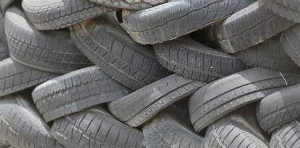Landlord not covered for unpaved driveway accident

A homeowner will not be compensated for accidental damage to his unpaved driveway after a dispute ruling determined it did not fall under the defined term of “building” covered by his landlord policy.
The complainant lodged a claim after a delivery truck got bogged and damaged his gravel driveway as it tried to drive out.
Allianz declined the claim, saying that its policy only considered paved driveways as part of a “building” covered by the policy.
The policy held specific definitions for what it did not cover under a section titled “what are not buildings”, which included “unpaved paths or unpaved driveways constructed of earth or gravel”.
The claimant said the driveway was sealed with bitumen and was therefore paved. He sought the insurer to cover a $21,285 quote to repair the driveway.
The Australian Financial Complaints Authority (AFCA) considered if the policy applied given the property’s location.
It observed the building as “one of two battleaxe properties” at the end of land divided into three lots. The ruling said because each lot had been separately titled, the insured property was required to have a paved driveway.
Because the policy did not have a specified definition for “paved”, AFCA relied on the Macquarie Dictionary, which defined it as “to cover or lay (a road, walk, etc.) with stones, bricks, tiles, wood, concrete, etc. to make a firm, level surface.”
AFCA said the applied definition of the term in the context of the dispute referred to a laid down solid material that created “a hard material with a degree of permanence that can withstand the force of traffic and elements upon it”.
The complainant provided documents detailing the construction history of the driveway and local council requirements for driveways that stated the driveway was sealed with bitumen and in good condition at the time of the accident.
The ruling raised doubts as to whether the driveway was sealed with bitumen but said it was not necessary to the central question of the dispute.
“The question before me is not whether the driveway was sealed or made of bitumen. Instead, I must consider if the driveway is paved,” AFCA said.
It considered aerial photos of the property that showed the delivery truck “bogged in mud” and said it had “torn up” the driveway as it continued to drive on wet ground. The photos also indicated the driveway to be made of loose dirt and stones, not bitumen.
AFCA also referred to photographs from the insurer-appointed loss assessor taken on December 16 last year, which showed “a driveway made of brown gravel, dirt and rocks”.
The complainant argued that the rocks and gravel were made as temporary repairs to allow tenants to access the property.
AFCA said it considered the photographs of the bogged delivery truck “to be most helpful” in determining whether the driveway was paved at the time of loss.
It dismissed the claimant’s contention that heavy rain in the time before the accident caused the truck to be stuck, saying instead that the driveway “lacked the degree of permanence that could withstand the effect of traffic and rain.”
The ruling said the driveway “lacked the characteristics of a one that would ordinarily be described as paved”.
It said Allianz was entitled to decline the claim as the unpaved driveway did not fall under the policy-defined term of “building.”
Click here for the full ruling.






